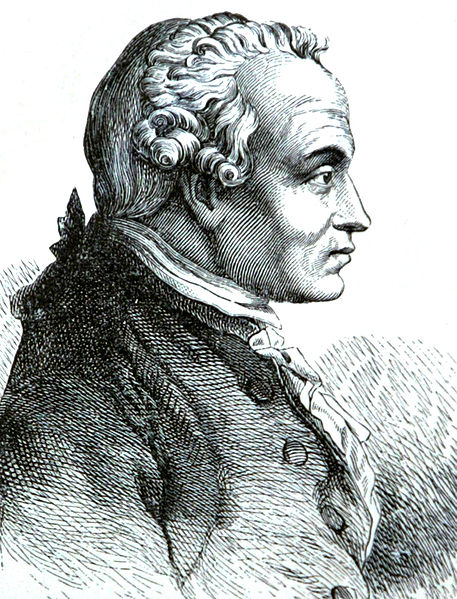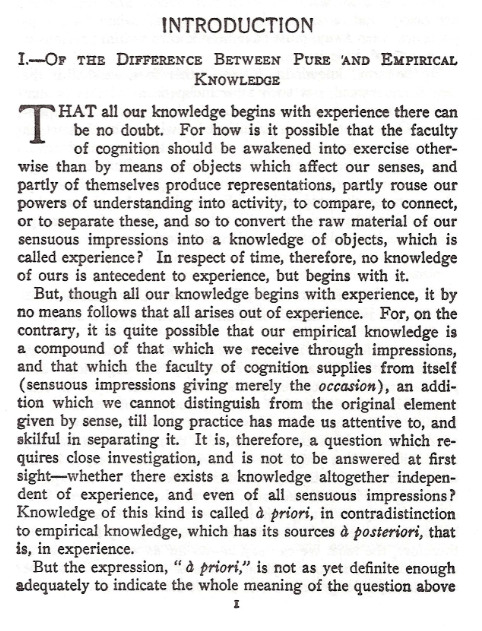Kant's Critique of Pure Reason
by Andrew Boyd
Today, a critique of pure reason. The University of Houston's College of Engineering presents this series about the machines that make our civilization run, and the people whose ingenuity created them.
All areas of human endeavor have their short list of luminaries. Baseball has Babe Ruth. Psychiatry, Sigmund Freud. And philosophy, Immanuel Kant.

Kant was a child of the Enlightenment. His early interest in classics gave way to philosophy when he entered the University of Königsberg, also known as Albertina. Upon graduation, Kant worked as a private tutor, then returned to Albertina as an unsalaried teacher. For fifteen years his main source of income was payment from his students. Busy as he was with teaching, Kant wrote prolifically. His reputation grew, and at age forty-six he was appointed chair of logic and metaphysics. Yet for his many highly respected works, by far the most influential was the Critique of Pure Reason, published in Kant's late fifties.
The Critique was a revolutionary look at an age-old problem that had found new life during the Enlightenment. Inspired by works like Descartes' Meditations and Newton's Principia, the Enlightenment celebrated reason. People could, and should, seek to critically evaluate their world; to weigh evidence, logically piece it together, and arrive at true knowledge.
Great emphasis was placed on evidence. But surely some things we just know. Our nation's founders held as self-evident that '' all men are created equal. That they are endowed by their Creator with certain inalienable Rights.'
Philosophical rationalism contends that, yes, there are things we just know. We can use pure reason to uncover them. Empiricism, on the other hand, holds that knowledge comes from experience. The mind is a tabula rasa, a blank tablet, waiting for our senses to write on it.
Rationalism or empiricism? It was a question that occupied some of the greatest minds of the time. Descartes, Spinoza, and Leibniz were leading rationalists. The empiricists counted Locke, Berkeley, and Hume among their ranks.
Yet it was Kant that brought entirely new dimensions to the debate. In many ways, what Kant proposed was a synthesis of the two positions. Like rationalists, Kant argued that the mind has the innate ability to reason. But, like empiricists, he insisted that unleashing actual reasoning required input from the senses.

Of course, attempting to summarize the Critique is a futile undertaking. The work is long and dense, filled with abstract concepts and awash in intricate arguments. While it's widely considered one of the single greatest works in the history of philosophy, it still fuels constant debate as scholars struggle with the nuances of Kant's writing. And that's fitting. For it's hard to imagine we'll ever fully know what it means to know.
I'm Andy Boyd at the University of Houston, where we're interested in the way inventive minds work.
Notes and references:
I. Kant. Critique of Pure Reason. Translated by J. M. D. Meiklejohn. Buffalo, New York: Promethus Books, 1990.
Kant. From the Stanford Encyclopedia of Philosophy Web site: https://plato.stanford.edu/entries/kant/. Accessed June 7, 2011.
Rationalism versus Empiricism. From the Stanford Encyclopedia of Philosophy Web site: https://plato.stanford.edu/entries/rationalism-empiricism/. Accessed June 7, 2011.
The picture of Kant is in the public domain because its copyright has expired. The picture of the introduction to the Critique of Pure Reason is by E. A. Boyd.